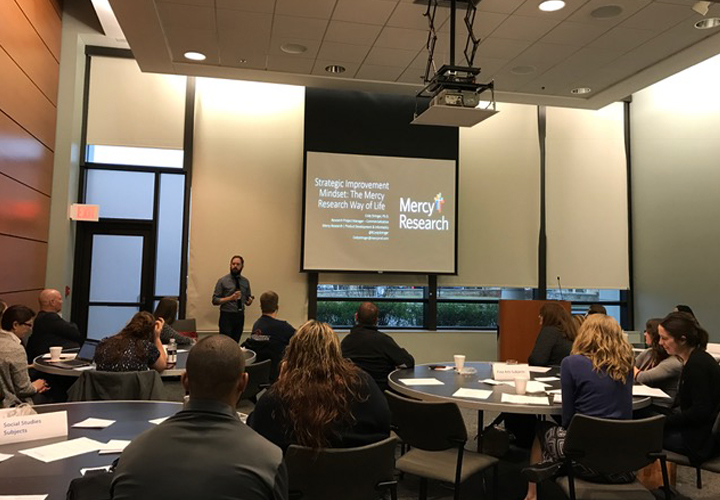Teaching teachers about opportunities for students

If you ask most Chamber members about their current outlook for the future, optimism is high. Customers are ready to buy and companies are ready to grow.
But if you ask those same companies to identify the biggest potential barrier to growth and optimism, the answer is almost unanimous: workforce. Access to workers – especially workers with the right skills – is the most significant challenge mentioned by companies of most industries and sizes.
The GO CAPS program was created to help begin addressing the issue by exposing area high school students to some of the industries with the most pressing need. And the GO CAPS Teacher Externship Program, which is gearing up for its third year, aims to spread the word even farther by bringing teachers into the workplace for job shadowing experiences that they can then share with their students.
“Getting new people to join the construction trades has been a nationwide problem for years,” says Ron Bogart, president of Gold Mechanical, which is participating this year for the second time. “Sometimes the education system is so focused on college prep that vital trades have been viewed as less important.”
In 2016, roughly 50 businesses participated in the program, hosting teachers for four days of demonstrations, orientation and hands-on experiences meant to show the teachers what opportunities could be available for students.
“When I’m planning lessons, I think through the application of the skills we learn in class – I’m more intentional in how I introduce things so that there is that real-world tie-in,” says Rebecca Oord, a math teacher at Parkview High School who participated in the 2016 externship program. “This program also lets me talk with students about the importance of taking initiative and being proactive in learning, taking responsibility, effective communication and group dynamics, and I can point to actual examples form my externship experience.”
The program has grown significantly since it began with about two dozen businesses in 2015 … so much so that the 2017 version will feature two, five-day sessions, June 26-30 and July 10-14. Teachers can sign up for either week, and businesses can participate in one or both sessions.
Many companies that participate see the program as an opportunity to show students and teachers that there are many options available – and not all require a traditional four-year college degree.
“Contrary to what many people believe, the construction industry offers many professional opportunities with a high level of compensation,” says David Atkisson, Springfield operations lead for JE Dunn Construction. “Whether you have a high school diploma, a two-year degree, a four-year degree, or even postgraduate education, there are many well-respected and good-paying opportunities in our industry. Once we expose people to the exciting things we get to be a part of every day, the opportunities will often sell themselves.”

